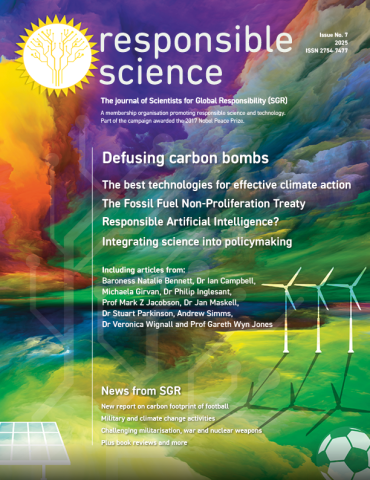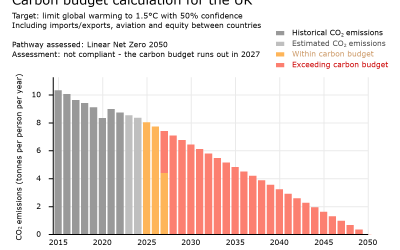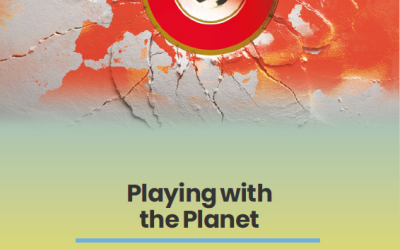Latest
Dr Ian Campbell shows how, on current trends, Britain’s carbon emissions will, within two years, exceed its fair share of the estimated global total that will breach the 1.5°C Paris target. He outlines the key implications for policy-makers and society as a whole.
8 July 2025
Hannah Huibregtsen, Leiden University, highlights the problems of under-reporting of military greenhouse gas emissions, as huge military spending targets are being agreed.
24 June 2025
Blogs
A new report co-published by SGR shows that the recent expansion of European club football competitions is leading to a large jump in associated GHG emissions. The research also shows that the competitions' sponsorship deals with high-carbon companies are responsible for even more emissions.
29 May 2025
Journal articles
Prof Mark Z Jacobson, Stanford University, gives a whirlwind, sun and water tour of the key renewable energy technologies needed to rapidly reduce pollution, and their major social and economic benefits.
7 May 2025
Presentations
Andrew Simms, SGR, was one of the speakers in a university-hosted panel discussion around the importance (or not) of international climate negotiations in the past, present and future. Available on YouTube.
17 April 2025

SGR's annual journal. Features include: the best technologies for effective climate action; the UK's fair carbon budget; the Fossil Fuel Non-Proliferation Treaty; tackling overconsumption; responsible Artificial Intelligence?; integrating science into policymaking; the global carbon footprint of football; and whales and climate change law.
The journal comes with membership of SGR and keeps you up-to-date with our activities.
May 2025
SGR's project work in this area focuses on: military carbon emissions; comparisons between resources used for military activities and for tackling climate change; military greenwash; and the links between climate change and conflict.
A Globally Responsible Career in science, technology, engineering or maths (STEM) is one that both meets your personal career aims and makes the world a better place. You can make an ethical choice about which sector or employer to work for, and seek out career opportunities that use your STEM skills in a globally responsible way.







